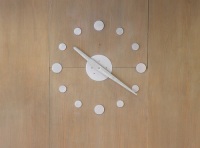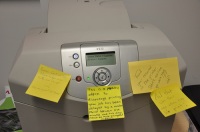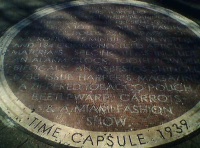GO PAPERLESS.- Communicative activities.

Listen to the situation.
Lourdes and Susana get home after a long day at work and they are exhausted. This is for them the worst part of living in London: They get up very early, spend the day at work and when they get home it is already dark outside. However, this is their favourite part of the day since they can do whatever they want without having parents or bosses around telling them what to do. Lourdes for example spends most of her free time on the Internet chatting with friends and uploading profile pictures for her msn account. Susana on the contrary loves reading and she could stay awake all night if she didn’t have to get up early in the morning.
Lourdes: “Oh my God! I’m exhausted! I’m going to relax for a while and then I’ll go online, I want to upload those beautiful pictures we took last Saturday at Buckingham Palace!”
Susana: “Oh yeah! That was really fun!” Do you remember those soldiers? They looked so funny just standing there all the time! I wonder what happens if one of them needs to go to the bathroom! He, he!” (Susana laughs).
Lourdes: “And what are you doing Susana? Do you have any plans for tonight?” Lourdes asks.
Susana: “Yes! I’m going out with my boyfriend to a pub and then... He, he... I wish I had a boyfriend! No, I think I’m just reading for a change! I still have that magazine I bought the other day, so I think it can be a good way to relax this evening!
And you? What do you usually do when you get home after a long day at work or school? Enter the forum and tell your classmates about it, who knows, you might have many things in common!

1.- Reading Exercise.
While Lourdes uploads some pictures on facebook, Susana lies on the sofa and takes the magazine she bought the other day on her way to the office. This magazine is about science and technology, something Susana is crazy about. This month's article seems quite interesting because it deals with the office of the future and it compares it to the traditionally-old one, aren't you curious to read what does it say about it?

Go paperless!!
The concept of the office of the future dates from the 1940s. It is also known as the "paper-less office", but sixty years after the phrase "paperless office" is discredited somewhat. Research and development around the idea continues under the name "office of the future", with quite a few new ideas.
From the very beginning, the traditional office has always had paper-based filling systems, which included filing cabinets, folders and shelves, which all take up a lot of space, requiring maintenance and equipment. In contrast, a paperless office could simply have a desk, chair, and computer with an Internet connection and all the information would be stored in digital form.
According to experts, the future office will be increasingly mobile and flexible to meet changing business needs. Core teams will manage employees working from diverse locations — from home offices to temporary business spaces to cafés. Professionals who are able to create new products and services and identify more efficient ways to work will be among the most marketable. The most important skills and abilities for administrative professionals can be summed up with the acronym ACTION. This stands for Analysis, Collaboration, Technical aptitude, Intuition, Ongoing education and Negotiation.
Read the text again and answer the following questions:
The term "office of the future" is …
2.- Listening Exercise.

Lourdes has been online for a while and she decides to turn the radio on so that she can practice a little bit of listening. When she is surfing through the channels looking for some good music, Susana shouts:
–Lourdes, please don't change it! What a coincidence! They are talking about the paperless office! Let's listen to it!
Lourdes looks at her in despair and says:
–Fun! Yeahhh! Come on Susana this is really boring!
–Sshhhh! –Susana whispers– the programme is about to start!
–OK! I'll go on with the pictures! –Lourdes answers angrily.
Listen to “In the Pipeline” a famous British radio programme.
Today's discussion is about the Paperless Office. Listen carefully and answer the questions below. Have fun!
What are technologies such as digital paper or electronic ink being developed for?
What about you? What do you think about the paperless office? Do you think it will be implemented in all countries? What about Spain? Enter the forum and share your opinion with your classmates.
3.- Speaking Exercise.

Enter the forum.
Imagine you are at the canteen with some colleagues talking about life in the future: the future man, future jobs etc. Think about it for a while and then record your voice. When you are happy with your recording, send it to your teacher. Try to sound natural!
4.- Writing Exercise.

According to Wikipedia, “A time capsule is a historic cache of goods and/or information, usually intended as a method of communication with future people and to help future archaeologists, anthropologists, and/or historians.” However, a time capsule can also be used to predict the future.
Imagine you are a scientist and someone has asked you to build a time capsule in which you predict life in the future. how do you think buildings will look like? And cars? How different our lives will be? Use your imagination!
Appendix.- Licenses of resources.
| Resource (1) | Resource information (1) | Resource (2) | Resource information (2) |
|---|---|---|---|
 |
By: Damemusic. License: CC by-nc-sa 2.0. From: http://www.flickr.com/photos/31332713@N04/3086719615/ |
 |
By: bur76 (Riccardo Cambiassi). License: CC by-nc 2.0. From: http://www.flickr.com/photos/bru/2967030367/ |
 |
By: Xurxo MartÃnez. License: CC by-ndc-sa 2.0. From: http://www.flickr.com/photos/seretuaccidente/539151490/ |
 |
By: MinimalistPhotography101.com. License: CC by 2.0. From: http://www.flickr.com/photos/artbystevejohnson/4647538238/ |
 |
By: Spatch. License: CC by-nc 2.0. From: http://www.flickr.com/photos/spatch/321094046/ |